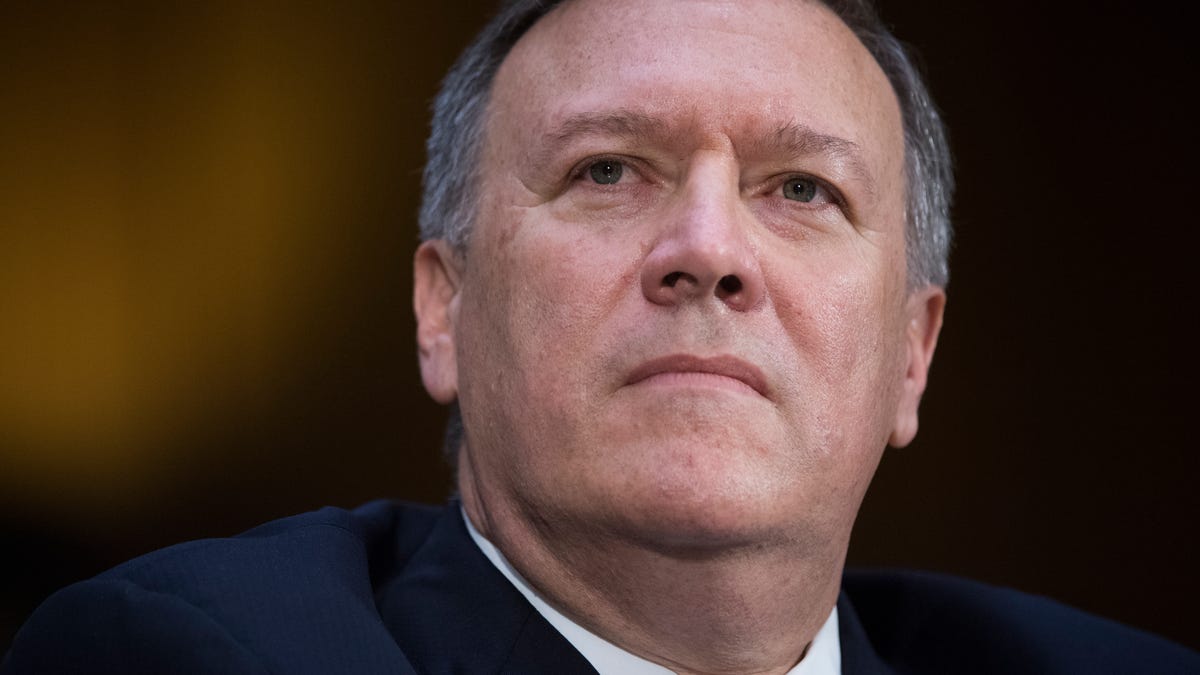Trump's CIA director wants to track your Facebook
The Senate intelligence committee asked potential CIA director Mike Pompeo what limits he'd have for mass surveillance.

Rep. Mike Pompeo, nominee for director of the Central Intelligence Agency, faced questioned on privacy rights.
If your Facebook profile is public, it'll be an open invitation for the CIA.
The Central Intelligence Agency is obligated to follow up on information that's on a public website, including on Facebook, Twitter and Instagram pages, Mike Pompeo, Trump's pick for the next CIA boss, said during his confirmation hearing Thursday.
"If someone is out there on their Facebook, talking about an attack or plotting an attack against America, I think you would find the director of the CIA grossly negligent if they didn't pursue that information," Pompeo said.
During the hearing, lawmakers hit the Republican congressman from Kansas on privacy issues. In 2015, Pompeo pushed to give mass surveillance tools back to the National Security Agency through the "Liberty Through Strength Act II." The NSA's mass data surveillance program had been defanged after whistleblower Edward Snowden's revelations.
Sen. Ron Wyden, Democrat from Oregon, was concerned with Pompeo's drive to make mass surveillance more powerful through that bill, which went so far as to propose collecting financial and "lifestyle" information in a "comprehensive, searchable database." Wyden wanted to know what limits Pompeo's rejected bill would have had.
"You would be in favor of a new law collecting all of this data about the personal lives of our people," Wyden asked at the hearing.
Pompeo, who has called for Snowden's death, said the US needed to collect publicly available information to "keep Americans safe."
The Orlando nightclub gunman posted a cryptic warning on his Facebook page before committing his murders last June. A student at Ohio State in November reportedly did the same on Facebook before carrying out a knife attack on campus.
Pompeo said public social media profiles such as those on Facebook could be useful in the CIA's counterterrorism efforts. He promised the Senate intelligence committee that the CIA wouldn't unlawfully spy on US citizens, reminding the lawmakers that he's voted for legislation protecting privacy.
He stressed that he was specifically talking about information available to the public, including Facebook posts. Facebook declined comment. The social network already scans people's posts and chats for any criminal activity, according to a 2012 interview.
The committee also challenged Pompeo on his social media history. After Pompeo said he's "never believed that WikiLeaks is a credible source of information," Sen. Angus King, an Independent from Maine, asked, "Well, how do you explain your Twitter?"
The senator brought up a tweet from July 24, 2016, in which Pompeo posted a WikiLeaks story as "proof that the fix was in from" President Barack Obama.
Pompeo stumbled before telling the committee he'd have to "go back and take a look" at his tweet from seven months ago.
WikiLeaks hit back against Pompeo's criticism on Thursday, tweeting that it had a "perfect record" for accuracy while Pompeo didn't.
On cybersecurity, Pompeo said he believes the US was attacked by Russia during the presidential election and that he considered it a national risk. He echoed the call made by John McCain, Republican senator from Arizona, to establish a policy on how to respond to cyberattacks.
The potential CIA director also agreed with Trump's criticisms of US cyberdefense.
"We have an awful lot of work to do. There's no reason to expect this threat to diminish," Pompeo said at the hearing.
Update, 4:23 p.m. PT: Adds Facebook declined to comment.
Life, disrupted: In Europe, millions of refugees are still searching for a safe place to settle. Tech should be part of the solution. But is it? CNET investigates.
CNET Magazine: Check out a sampling of the stories you'll find in CNET's newsstand edition, right here.

